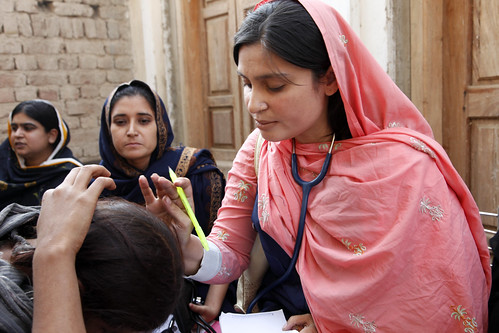8th March 2012 Ottawa, Canada
In the name of equality

Today is International Women’s Day – a day that has been observed since the early 1900’s – a time that saw great expansion and turbulence in the industrialized world, and women’s inequality and oppression was starting to spark debate and active campaigning for change. The day has now become recognised globally – across developed and developing countries alike – as a day to take stock, celebrate the role of women in the world, and recognise the many battles still to be fought in the name of equality.
As a senior woman in the Foreign Office, I still have days when l feel like a woman in a “man’s job”. But only occasionally. We have come a very long way since 1972 when women, at whatever level, still had to resign on marriage. We still don’t have enough women in senior ranks – and we need to continue tackling the obstacles to progression, the pressures of dual careers in a job where you are continually posted overseas, the shortage of female “role models”, and the perception/reality that the top jobs are not compatible with a having a family life. But we’re getting there.
Looking at the global picture, there are huge challenges remaining. It’s a shocking fact that 1 in 3 women will face violence in their lifetime and that violence is a bigger threat to women’s health than cancer or malaria. 215 million women around the world who want to use modern contraception don’t have access to it. And lack of access to family planning contributes to 20 million women having unsafe abortions every year. Women make up 51% of the world’s population and produce 60-80% of the world’s agricultural produce – yet they own less than 5% of the world’s titled land.
Inequality remains a problem across the world, from North to South, East to West. According to a recent report, a British woman will face the prospect of at least 14 more general elections before women equal men in the House of Commons. But it’s not all bad news. We also saw the youngest woman, at 39, take her seat in the House of Lords this year, and be the first to breast-feed in the building in 700 years. A woman in Qatar will be six times more likely to go to university than the man next door. In Rwanda, women make up the majority of parliamentarians. The British Government is committed to driving international action to empower women and girls, putting a focus on gender equality and women’s rights as a key lever to achieving the Millennium Development Goals.
I’m delighted to see so much happening here in Canada for International Women’s Day. This year, Status of Women Canada’s theme for the Day celebrates women’s roles in the economic prosperity of rural, remote and Northern regions, where women make up 45% of the labour force, but significant inequalities persist in the workplace. And I have been humbled by how many other groups are organising events across Canada.
I hope you all get the chance to participate, in some way, in one of these events. Or, if not, at least take a moment to celebrate how far we have come, and acknowledge how far we still have to go.